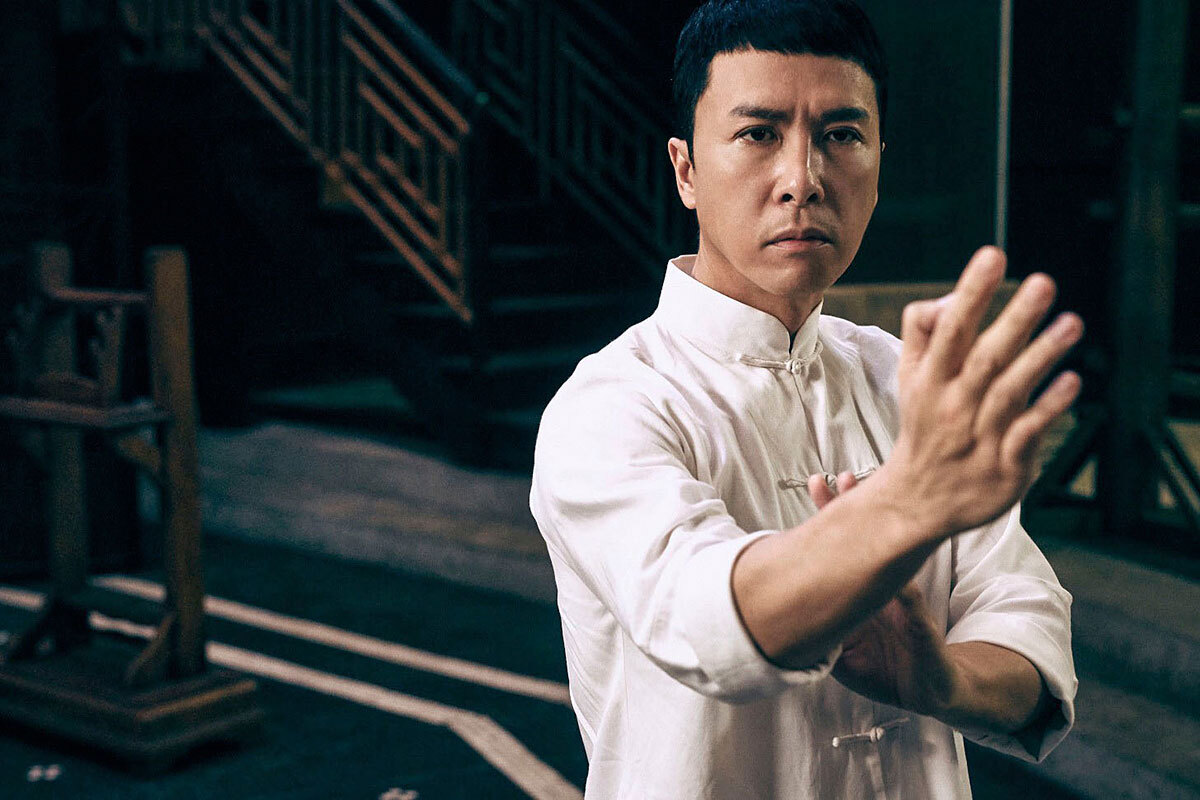
Who was Yip Man? Yip Man, also known as Ip Man, was a legendary martial artist from China. Born in 1893, he became famous for his mastery of Wing Chun, a form of Kung Fu. Why is he important? Yip Man is best known as the teacher of Bruce Lee, one of the most iconic martial artists and actors of all time. What makes his story unique? Despite facing numerous challenges, including war and personal hardships, Yip Man's dedication to martial arts never wavered. His life has inspired numerous films, books, and documentaries, making him a cultural icon. Want to know more? Here are 37 fascinating facts about Yip Man that will give you a deeper understanding of his incredible life and legacy.
Key Takeaways:
- Yip Man, a legendary martial artist, had a fascinating life filled with rigorous training, famous students, and a lasting impact on Wing Chun and martial arts worldwide.
- His dedication to teaching and spreading Wing Chun has inspired generations, immortalized in popular films, books, and the continued success of Wing Chun schools globally.
Early Life and Background
Yip Man, also known as Ip Man, was a legendary martial artist who played a pivotal role in popularizing Wing Chun. His life is filled with fascinating stories and achievements.
- Yip Man was born on October 1, 1893, in Foshan, Guangdong Province, China.
- He came from a wealthy family, which allowed him to start learning martial arts at a young age.
- His first Wing Chun teacher was Chan Wah-shun, who accepted him as a student when Yip Man was just 9 years old.
- After Chan Wah-shun's death, Yip Man continued his training under Ng Chung-sok, another student of Chan Wah-shun.
- At the age of 16, Yip Man moved to Hong Kong for further education.
Training and Development
Yip Man's journey in martial arts was marked by rigorous training and significant milestones. His dedication to Wing Chun was unwavering.
- In Hong Kong, Yip Man met Leung Bik, the son of Leung Jan, a famous Wing Chun master.
- Leung Bik refined Yip Man's Wing Chun techniques, significantly improving his skills.
- Yip Man returned to Foshan in his early 20s and began teaching Wing Chun to a select group of students.
- During the Second Sino-Japanese War, Yip Man served as a police officer in Foshan.
- He moved back to Hong Kong permanently in 1949 due to the Chinese Civil War.
Teaching Career
Yip Man's teaching career in Hong Kong was transformative for Wing Chun. He trained many students who would go on to become famous martial artists themselves.
- In 1950, Yip Man started teaching Wing Chun at the Restaurant Workers' Union in Hong Kong.
- His first private Wing Chun school opened in 1954.
- Among his most famous students was Bruce Lee, who later became a global martial arts icon.
- Yip Man's teaching methods were known for being strict yet effective.
- He emphasized the importance of Chi Sau (sticky hands) in Wing Chun training.
Legacy and Influence
Yip Man's influence on martial arts extends far beyond his lifetime. His legacy continues to inspire martial artists around the world.
- Yip Man passed away on December 2, 1972, in Hong Kong.
- His life and teachings have been immortalized in numerous films, including the popular "Ip Man" series starring Donnie Yen.
- The Ip Man movies have brought global attention to Wing Chun.
- Yip Man's sons, Ip Chun and Ip Ching, also became Wing Chun masters.
- Many of Yip Man's students opened their own Wing Chun schools, spreading the art worldwide.
Personal Life
Yip Man's personal life was as intriguing as his martial arts career. His experiences shaped his philosophy and approach to Wing Chun.
- He married Cheung Wing-sing, and they had two sons and two daughters.
- Despite his wealth, Yip Man faced financial difficulties later in life due to his dedication to teaching Wing Chun.
- Yip Man was known for his humility and dedication to his students.
- He was a lifelong practitioner of Chinese medicine, which he often used to treat his students' injuries.
- Yip Man enjoyed playing mahjong in his free time.
Cultural Impact
Yip Man's impact on culture and martial arts is undeniable. His story continues to captivate audiences and inspire new generations.
- The "Ip Man" films have grossed millions worldwide, highlighting his enduring popularity.
- Yip Man's life story has been adapted into books, documentaries, and TV series.
- His teachings have influenced various martial arts beyond Wing Chun.
- Yip Man's philosophy emphasized practicality and efficiency in combat.
- He believed that martial arts should be accessible to everyone, regardless of their background.
Interesting Tidbits
There are many lesser-known facts about Yip Man that add depth to his already fascinating story.
- Yip Man was a close friend of martial artist and actor Wong Shun Leung.
- He once fought a Western boxer in Hong Kong, showcasing Wing Chun's effectiveness.
- Yip Man's favorite weapon was the butterfly sword.
- He was known to practice Wing Chun forms daily, even in his old age.
- Yip Man's teachings have been passed down through multiple generations of martial artists.
- He was posthumously awarded the title of "Grandmaster" by various martial arts organizations.
- Yip Man's legacy continues to thrive through the countless Wing Chun schools around the world.
Yip Man's Legacy Lives On
Yip Man's influence on martial arts remains undeniable. His dedication to Wing Chun and his role as Bruce Lee's mentor have cemented his place in history. Beyond his fighting skills, Yip Man's philosophy of simplicity and efficiency in combat continues to inspire martial artists worldwide. His life story, filled with challenges and triumphs, showcases the resilience and spirit of a true master. Whether you're a martial arts enthusiast or just curious about his legacy, Yip Man's journey offers valuable lessons in perseverance and discipline. His teachings live on through countless students and practitioners, ensuring that his impact will be felt for generations to come. Dive into the world of Wing Chun and discover the profound wisdom Yip Man has left behind.
Frequently Asked Questions
Was this page helpful?
Our commitment to delivering trustworthy and engaging content is at the heart of what we do. Each fact on our site is contributed by real users like you, bringing a wealth of diverse insights and information. To ensure the highest standards of accuracy and reliability, our dedicated editors meticulously review each submission. This process guarantees that the facts we share are not only fascinating but also credible. Trust in our commitment to quality and authenticity as you explore and learn with us.


